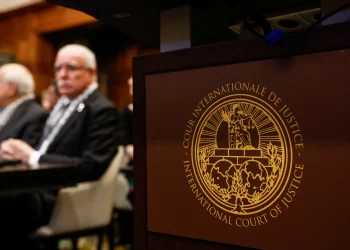Jürgen Habermas, the celebrated German philosopher, rejected a book award from the UAE over the country’s human rights conduct.
The renowned and widely respected intellectual is in his 90s, but he has remained in the center of attention this week since after accepting, then rejecting, a disputed award from the United Arab Emirates.
Habermas declined the Sheikh Zayed Book Award after agreeing to embrace it, which would have named him the Cultural Personality of 2021. He would also receive a tempting €225,000-prize.
In the end, Habermas was unable to abandon his central philosophical values, which he had developed over a seventy-year period.
Habermas is committed to his cosmopolitan vision of an inclusive and robust society. He campaigned for asylum-seeking right during the 2015 migrant crisis.
In 2019, he actively worked against xenophobia and right-wing extremism during the European parliament election.
He wrote “This Too a History of Philosophy”, an astonishing review of the evolution and expansion of human reasoning in 2019. The Boston Review called the book “a masterpiece of erudition and synthesis” and analysts found it a rebirth in Habermas career.
A controversial award
The award which was presented by an absolute power in the UAE led to increasing criticism and accusations of tyranny. Activists believe that accepting the prize was in contradiction with the man’s recurrently promised value of freedom of expression.
Habermas asserted later in a statement that accepting the prize was a wrong decision. He further explained that “I didn’t properly make clear to myself the very close relation of the organization, which awards these prizes in Abu Dhabi, with the current political structure there.”
Spiegel Online was the first to criticize and question why the best German philosopher of the last decades accepted the prize from a country on whose values and system he had always had a critical view.
The journal writes, “with this world-class thinker who has stood for the Enlightenment project and critical distance from power for more than half a century, it should be possible to answer the question [of whether to accept the award] with a resounding ‘no.'”
Habermas ambitiously hoped that the award would open the door for a “tailwind” for the “dissemination of books” in the Middle East, and in turn, encourage freedom of expression and democracy. The German philosopher also counted on Jürgen Boos’ advice, a member of the Sheikh Zayed Book Award adjudication committee.
Habermas asserted in his statement that Boos undermined the regional and global concerns over the origin and attitude of the prize and institutions behind it.
UAE human rights conduct
While the rulers in Abu Dhabi attempt to prove the country is “a bastion of liberalism, behind the glistening façade is an uglier reality where critics are jailed, the rights of migrant workers are limited, and the ruler of Dubai locks up his adult daughter for wanting to escape life under his thumb,” says Kenneth Roth, Executive Director at Human Rights Watch.
As one example, Sheikh Mohammed, the UAE’s prime minister who also rules Dubai, has two daughters the fate of both is in haze. Latifa, one daughter, has not been heard since trying to flee the country in 2018. Shamsa, another, has been missing since 2000. She was allegedly kidnapped in Cambridge, England then.
#FreeLatifa campaign gained momentum just a day before Habermas changed his idea about accepting the award. The campaign centered around banning Sheikh Mohammed’s horse from the Kentucky Derby.
UAE’s conduct on women’s rights and freedom of press has been disputed for many years. Celebrity “influencers” in Dubai, misused as a tool, are well-known for receiving tax-free income in exchange for promoting the UAE’s sun-drenched Persian Gulf city.
Furthermore, UAE, along with Saudi Arabia, has been involved in the six-year bloody Yemen war in which hundreds of thousands of civilians lost their lives and millions were displaced.
While the Zayed Book Award officials expressed regret about Habermas’ decision, the German philosopher pas praised by philosophers and activists around the world for the courageous move.








